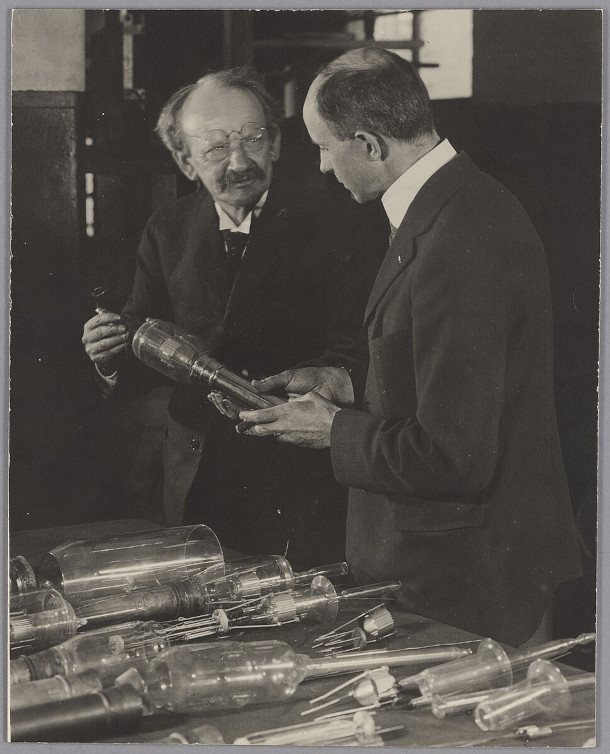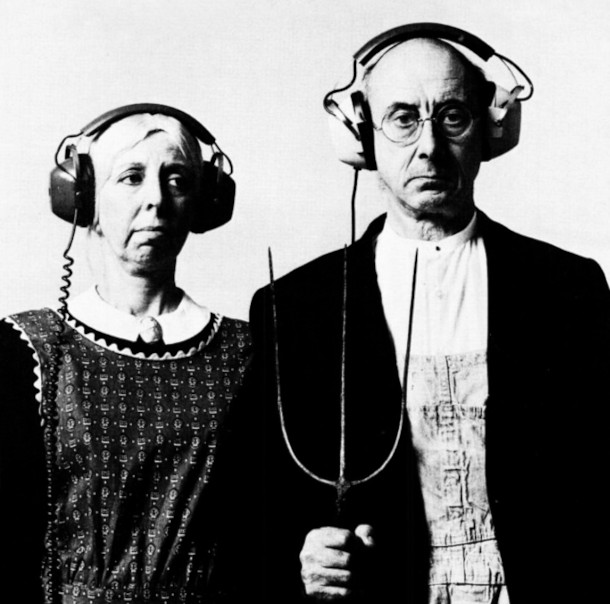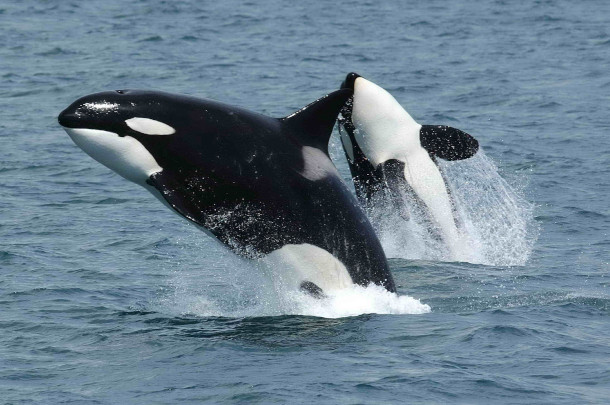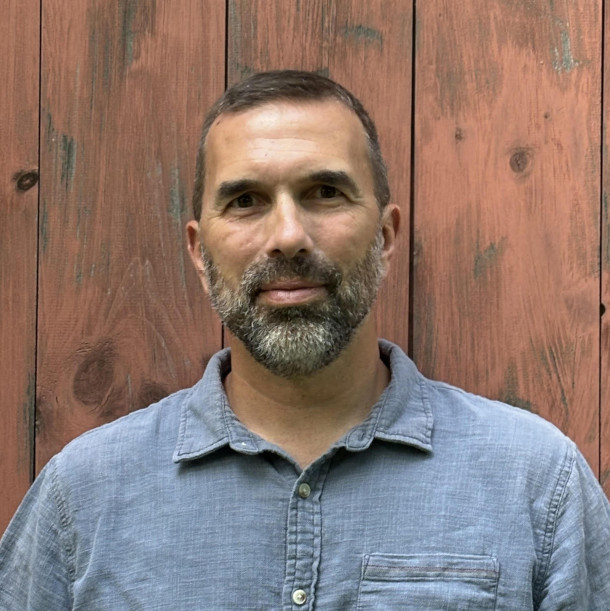The Health Risks of Noise
Air Date: Week of September 12, 2025

Chris Berdik’s latest book, Clamor: How Noise Took Over the World and How We Can Take It Back. (Photo: Courtesy of Chris Berdik).
Human-made noise is bad for our health, disrupts our natural world, and hinders our ability to connect with one another. Author and journalist Chris Berdik joins Host Steve Curwood to discuss his book Clamor: How Noise Took Over the World and How We Can Take It Back, which explores the hidden costs of unwanted sound and advocates for turning down the volume on human-made noise.
Transcript
CURWOOD: There’s one environmental pollutant at large that most of us encounter day and night, yet it’s rarely discussed.
[montage of cars honking… engines revving… construction… siren… leafblower – all sounds from freesound.org]
CURWOOD: Noise.
It’s bad for our health, disrupts our natural world, and hinders our ability to connect with one another. In his recent book, Clamor: How Noise Took Over the World and How We Can Take It Back, author and journalist Chris Berdik explores the hidden costs of unwanted sound and advocates for turning down the volume on human-made noise. Once upon a time, Chris Berdik was a Living on Earth intern and he joins me now. Welcome back to Living on Earth, Chris!
BERDIK: Thank you so much, Steve, great to see you again.
CURWOOD: So this may be a silly question, Chris, but why should we care about noise?
BERDIK: It's not a silly question. I think people care deeply about noise when it's in their ears, when it's 3am and there's a car alarm going off down the street, when they're trying to finish a deadline at work and all they can hear is the chatter of their office mates, when they're visiting a loved one in the hospital who hasn't been able to sleep in several days because of all the alarms. When that happens, people care extremely deeply about noise. My argument is that they should care about noise as a systemic problem because of all of the sort of widespread impacts that it has, the harms that it has on our health and our well-being, the degrading of our natural habitats. To care about these things is to care about noise.
CURWOOD: One of the theses of your book is that our understanding of noise is oversimplified by simply measuring how loud it is, that is, measured in decibels. Talk to me about that. What is the decibel and why is it an overly simplistic way to look at noise?

Sound is typically measured in decibels, a metric coined by the Bell Telephone Laboratories in the 1920s. Above, a 1923 photo of Professor of Experimental Physics, Joseph J. Thomson (left), and President of Bell Labs, Frank B. Jewett. (Photo: MIT Museum, Wikimedia Commons, Public Domain)
BERDIK: The decibel is a metric that was devised by Bell Labs in the 1920s, and what it measures is the acoustic sound intensity. The full measurement of it is watts per meter squared. And they created the decibel scale as kind of a simplified way of covering the vast amount of acoustic energy intensity that spans the range of human hearing. But all it is is this sliver of what we would interpret as loudness of the sound. It became a go-to measurement because it was so simple, it was very easy to think about it as the dividing line between wanted or unwanted sound based on how loud it was. But what it ignores is everything else about the sound, part of it being the acoustic measurements of rhythm, of tonality. But more than that, the context in which we're listening to different sounds, and those are vitally important. It really matters when you're listening to certain sounds, whether you are trying to sleep, or whether you are trying to socialize, or whether you are on a hike in a woodsy park, or you are in your hospital bed, these are all different contexts that have a much bigger impact on whether sound is wanted or unwanted than just how many decibels it is.
CURWOOD: Chris, tell me, how does noise affect our interactions with each other?
BERDIK: Well, basically, our hearing is our way of connecting with one another, and when we start to lose that ability, for instance, in a crowded restaurant, then sometimes what will happen is people will just stop trying. People will sit there and just eat their food, nod along when other people are talking, or they will stop accepting the invitations to socialize with one another. There's research out of Johns Hopkins showing that people who have hearing loss have a much higher risk of depression and dementia, and the potential reason for that is because they are withdrawing socially, because they have difficulty in connecting because of the hearing loss.

In the modern day, a noisy restaurant can make it hard for conversations to be heard. This can be increased especially for those who are deaf or hard of hearing. (Photo: Darya Sannikova, Pexels, Pexels license)
CURWOOD: So we may not think of it as one, but noise is an environmental pollutant, as you say, affects our health, say, as much as having lead in the water or particulate matter in the air. Talk to me more about those impacts on our health.
BERDIK: Sure, well, the first part of it is the impacts on our, our hearing health. The WHO, the World Health Organization estimates that by 2050, about 2.5 billion people on the planet will have hearing loss, which is a combination of aging and noise-induced hearing loss. They also estimate that young people, about a billion of them, are at risk of noise-induced hearing loss just by listening to their devices too loudly. The other part of the health impacts are less reliant on decibels. They are more reliant on how unwanted sound can cause us chronic stress and can disrupt our sleep. And these impacts, along with other things that can cause us chronic stress, start to have these cascading health impacts, clogging our arteries, increasing the amount of cortisol pumping through our bodies. All of these downstream impacts are because we are exposed to sounds that are getting in our way of being able to focus, getting in our way when we're trying to communicate, and waking us up at night, even when we're not fully aware of how much disruption they're causing. They are keeping us from having that restful state that comes along with sleep, when our heart rate goes down, our blood pressure goes down, but our ears are still attuned to the world because they are kind of trying to keep us safe, and when they hear sounds and noise from, say, traffic, they will cause our blood pressure to go up and our heart rates to go back up, and we will feel the effects of those if that happens in a chronic way.
CURWOOD: So you dedicate a chapter of your book to what's called the noise gap, or disproportionate effects of noise on certain populations. Please explain to me what those are.

The World Health Organization estimates that 2.5 billion people will have hearing loss by 2050. Berdik adds that young people are especially at risk due to listening to their devices too loudly. (Photo: RCA Records, Wikimedia Commons, Public Domain)
BERDIK: So the noise gap, the first use of that term was from a 2017 study that took a macro look at this, which was they looked at census tracks nationwide, and they had modeled noise exposure from transportation, from road, from rail, from airplanes. And they saw that as these census tracts became more affluent and whiter in their population, that they had fewer decibels of exposure to this noise. And so subsequently, it had been followed up by a number of city-by-city studies looking at neighborhoods that had been redlined in the 30s and 40s, which was a biased way of determining the risk for investors that was largely based on the ethnic and racial makeup of different neighborhoods in different cities. And what these studies find is that formerly redlined neighborhoods have more noise exposure in addition to other pollution exposure, and they also have less green space, so they have not as much buffering to that city sound.
CURWOOD: Now when we talk about the varying effects of noise on different populations, we can't forget about the most vulnerable among us. That's the natural world. They don't get to have a hand or a paw or a fin on the volume control. How are our non-human counterparts uniquely affected by disruptive sounds?
BERDIK: Yeah, well, you had it just right there. They can't put a paw on the volume control knob. They also can't put a pair of noise-canceling headphones on when they are bothered by sound, they rely on being able to hear in order to connect with one another, to find mates, to forage for food, avoid predators, you name it, hearing is incredibly important to wildlife. Looking at wildlife in the ocean, oftentimes, you know, they have to communicate over vast distances in low light, where you know, seeing is not the best option. Hearing is incredibly important. And when you have human noise coming into these environments, especially the kind of noise that is constant, that never goes away, in the ocean that's principally from ocean-going vessels, cargo vessels, tankers. It creates what some conservationists have called a "sensory smog" that shrinks the sensory world of these animals. Makes it that much harder for them to find food, to escape predators, to talk to one another. It's what Leila Hatch, who's a marine biologist, has called a stress multiplier. And many of these species have quite a lot of stresses that they're already dealing with, and they don't have a lot of reserve energy in order to deal with them.
CURWOOD: That's interesting, because we've seen off the coast of Spain, orcas, or like so-called killer whales, sometimes going after sailboats, kind of attacking them. Makes me wonder if they're irritated by the noise that they hear.

Aquatic ecosystems are especially vulnerable to human noise disruption because they rely on sound to hunt, mate, and communicate in the dark ocean. (Photo: Robert Pittman, Wikimedia Commons, Public Domain)
BERDIK: Yeah, that could be. I think there's just so much that we don't know about the sonic worlds of creatures who are not us. This is a concept called umwelts, which was coined by a German biologist in the 1800s named Johann Jakob von Uexküll. And it was just this idea that animals don't experience sound or any of the other senses in the way that we do. There could be a number of sounds that bother us intensely that a certain species can't hear at all, that sound may be important for them at certain points, but easily ignored by them otherwise. And the amount of research that's been done has mainly been looking at, you know, a bit of potential hearing loss among animals, which can be a problem, especially for mammals, but not as much for other animals, which are able to regrow parts of their inner ear and hearing system, and also sort of behaviorally. What do they do when noise is present, when a ship is passing by? Are they less efficient at hunting, do they have louder vocalizations, that sort of thing? But we haven't, we've just barely scratched the surface to understand what their sensory worlds are and how they would react to specific sounds.
CURWOOD: How is our changing environment, and specifically climate disruption, intensifying the noise crisis do you think?
BERDIK: Well, one big way is that the Arctic ice used to be a protector of quiet, because you couldn't have ships going over it. You were limited in your ability to do other noise-producing things like explore for gas and oil and do the natural resource extraction. As that ice melts, we're seeing a fast uptick in the vessel traffic there, and more interest in exploring those areas for resources. So that is going to quickly eliminate one of the last quiet refuges, and that's one way. Another way is that this changing climate, it's increasing the need for animals to go far afield to find their food. The plankton that certain whales need to eat many, many tons of every day is, they're shifting in where they can be found because of the changing climate. So the whales have to go and go further to find these food sources. At the very same time that their sensory world, their ability to do that kind of an exploration, is shrinking due to the noise. So it's, as Leila Hatch said, it's a stress multiplier that you have the need for animals to have a larger world at the very time that their sensory world is shrinking.

Chris Berdik is an author and journalist whose work covers the intersection of science, health, technology, and education. (Photo: Courtesy of Chris Berdik)
CURWOOD: Chris, I mean, to what extent is all noise bad? I mean, is there anything we can do not to just decrease harmful noise, but incorporate better sounds into our daily lives?
BERDIK: Yeah, all noise is not bad. There are many noises, many sounds that have shown to be a benefit to us. In particular, the sound of nature. This has been shown to lower our cortisol levels, to lower our heart rates, to help restore our attentional resources. You know, part of this is just being cognizant of it and taking the time to get out into green spaces and spend time in wilderness areas when we're able to. That, of course, means protecting those soundscapes and understanding that when we are trying to keep the sensory smog of human noise out of wilderness areas that we're, we're not just doing it for the wild creatures, but we're doing it in some sense for ourselves as well. When we neglect sound and the sonic environment, that can do us quite a bit of harm, and when we pay attention to it, it can actually be an ally and a resource for us.
CURWOOD: Chris Berdik is the author of Clamor: How Noise Took Over The World -- and How We Can Take It Back. Thanks for joining us today, Chris.
BERDIK: Thank you so much, Steve, it's been a pleasure.
Links
Living on Earth wants to hear from you!
Living on Earth
62 Calef Highway, Suite 212
Lee, NH 03861
Telephone: 617-287-4121
E-mail: comments@loe.org
Newsletter [Click here]
Donate to Living on Earth!
Living on Earth is an independent media program and relies entirely on contributions from listeners and institutions supporting public service. Please donate now to preserve an independent environmental voice.
NewsletterLiving on Earth offers a weekly delivery of the show's rundown to your mailbox. Sign up for our newsletter today!
 Sailors For The Sea: Be the change you want to sea.
Sailors For The Sea: Be the change you want to sea.
 The Grantham Foundation for the Protection of the Environment: Committed to protecting and improving the health of the global environment.
The Grantham Foundation for the Protection of the Environment: Committed to protecting and improving the health of the global environment.
 Contribute to Living on Earth and receive, as our gift to you, an archival print of one of Mark Seth Lender's extraordinary wildlife photographs. Follow the link to see Mark's current collection of photographs.
Contribute to Living on Earth and receive, as our gift to you, an archival print of one of Mark Seth Lender's extraordinary wildlife photographs. Follow the link to see Mark's current collection of photographs.
 Buy a signed copy of Mark Seth Lender's book Smeagull the Seagull & support Living on Earth
Buy a signed copy of Mark Seth Lender's book Smeagull the Seagull & support Living on Earth

